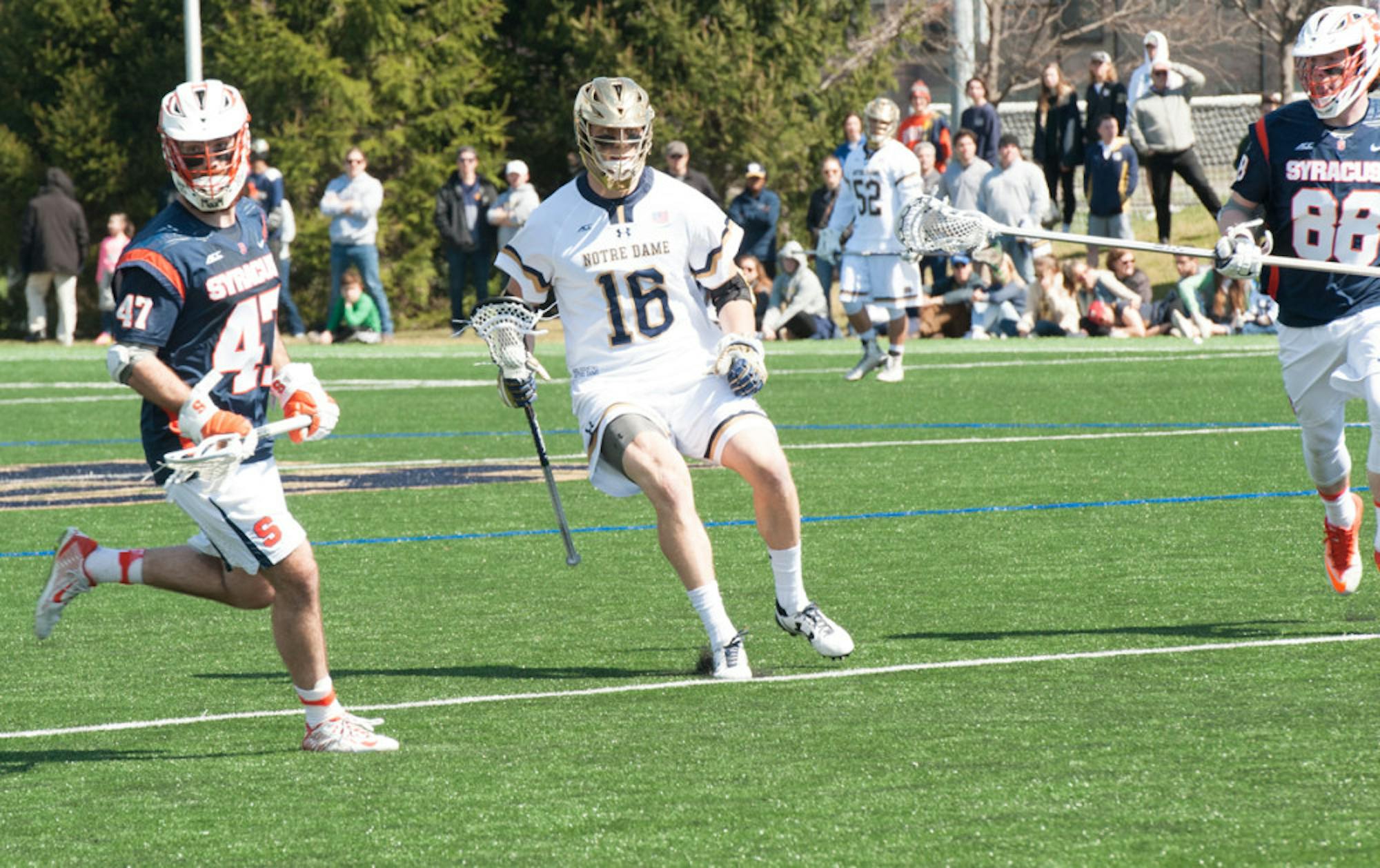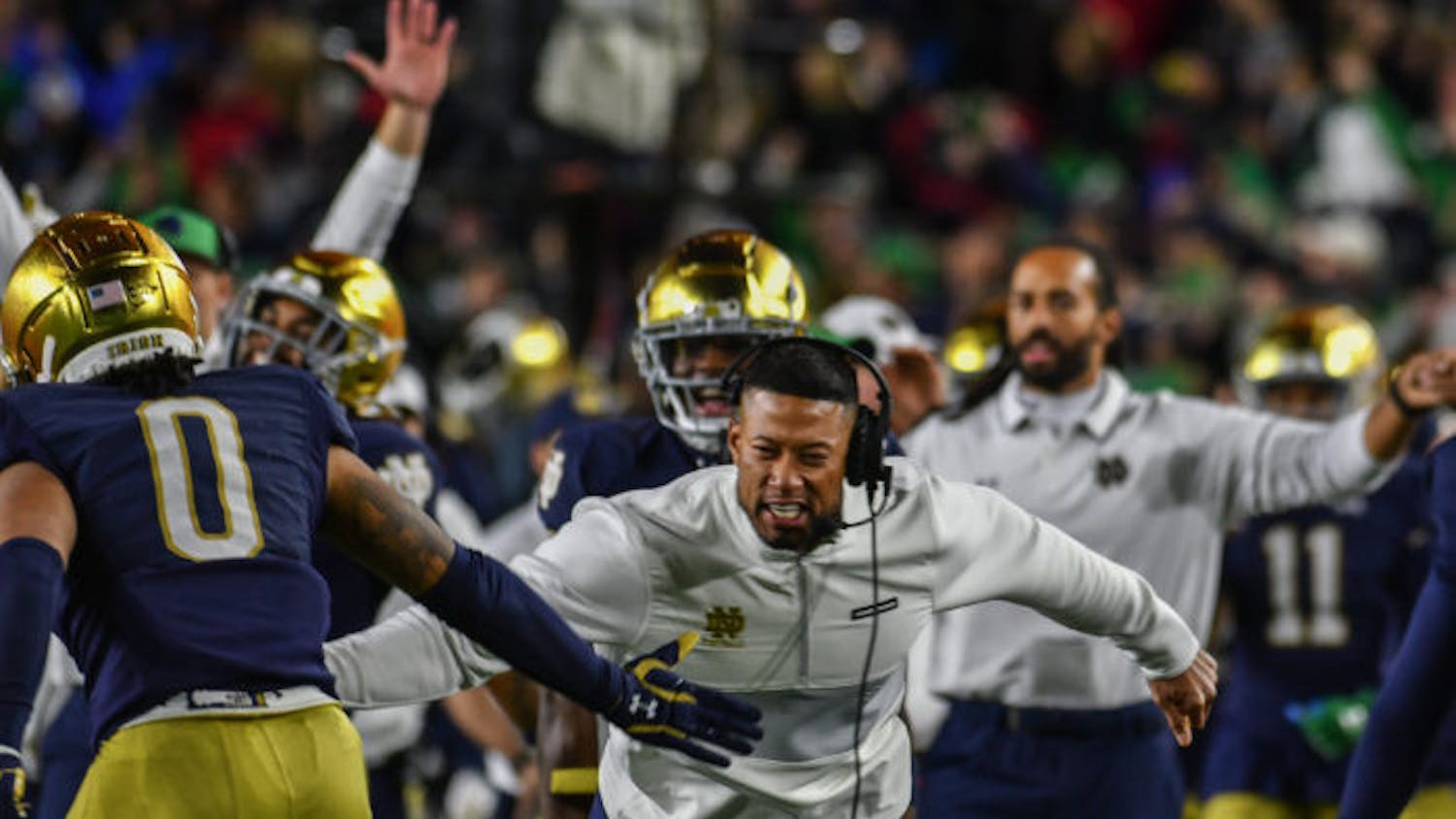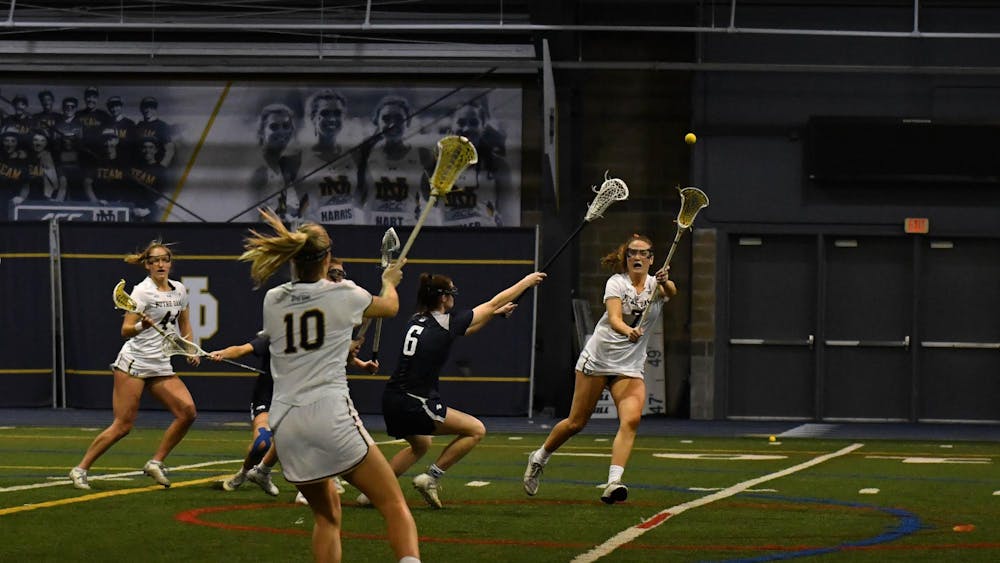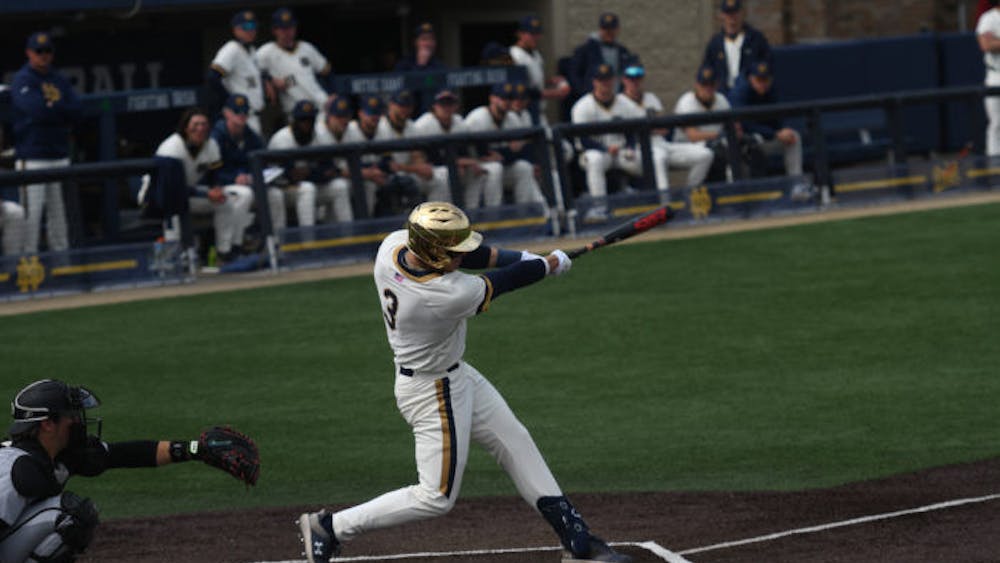No. 4 Notre Dame will gear up for yet another top-10 matchup when it travels to Durham, North Carolina, to take on No. 10 Duke on Saturday.
The Irish (5-2, 1-1 ACC) enter the contest on the back of just their second loss of the season, this one to another top-ranked ACC foe in No. 2 Syracuse. The 11-10 defeat was the team’s fourth one-goal game in its last five contests, and Irish head coach Kevin Corrigan said the loss was a reminder of the perpetual premium placed on execution in end-of-game situations, which he believes is an area his team has continued to improve in but still needs to work on.
“You’re always going to have to win close games at the end of the year, there’s no doubt about that,” Corrigan said. “I think we could’ve learned everything we could’ve learned by winning all four of those close games, but clearly you see there’s a premium on execution at the end of games in those situations. You know, we ran two end-of-game things [against Syracuse], and we got one great shot. … Then the second one, we were very close to getting what we wanted. I was pleased with the way we did our end-of-game [execution] for the most part — with a few exceptions — but that’s something you have to work at throughout the year.
“ … We’re a good end-of-game team. We don’t give away a lot of games. But we play good people, so I’d rather see us make more plays throughout the game so that we’re not in that end-of-game situation quite as frequently.”
One thing Notre Dame has consistently done well over its last four games — even though two of those games have ended in defeat — is score goals; the Irish have now scored at least 10 in each of its last four games, all of which have come against ranked opponents. However, Corrigan still believes the Irish can improve in several other areas on the offensive side of the field, particularly when it comes to dictating the game’s tempo.
“There are a number of different objectives offensively that you have,” Corrigan said. “Obviously, one is to score goals. Another is to control the tempo of the game because you can control the tempo completely when the ball is in your stick, [but] you can’t at any other time — you can encourage things to happen, but you can’t control it absolutely unless you have the ball.
“ … There are a number of different things offenses can do well. We’re getting there, but there’s a lot of improvement we can make to make sure that all of those things are kind of in synchronicity so that we’re playing not just good offense from a scoring standpoint but effective offense from a complete-game sense.”
Tempo becomes particularly significant in limiting transition opportunities for opponents, which can help take pressure off of a team’s defense, Corrigan said. And limiting the opposition’s scoring has been an issue for the Irish in its tight games, as it scored 10 goals in both of its losses but gave up the go-ahead goals in the fourth quarter to both Syracuse and Denver.
“Offense is a big part of that,” Corrigan said of the way the Irish offense can help keep their defense out of difficult spots. “Playing at the right tempo, making sure that the balance of offense and defense doesn’t get out of whack — if you’re playing too much defense but you’re scoring goals, that’s not a great recipe either. The offense also has to make sure they’re playing in a way that they’re not selling out to score goals all the time because then you’re not balancing the field, then you’re giving up transition. If you’re giving up transition goals — so you score a couple extra but you give away a couple in transition — maybe that’s not as much your defense’s fault as your offense putting them in vulnerable position.”
And the Irish will need start to make those improvements soon, as their daunting schedule continues Saturday with a sixth straight game against ranked opposition, this time with it being the Blue Devils (8-3, 1-1 ACC) on the other side of the field. Duke has been one of Notre Dame’s toughest opponents over the last few seasons, as the Blue Devils beat the Irish in the national championship three seasons ago and have topped the Irish in the ACC semifinals each of the last three seasons.
“They’re always a good offensive team,” Corrigan said of Duke. “They’ve always got guys that are weapons and they do a good job of putting them in situations — you know, they’ve got some players who are very comfortable in certain situations, and they do a very good job of getting them to those situations.”
This year’s Duke squad has a different look, however; two of Blue Devils’ former top scorers — midfielders Myles Jones and Deemer Class — graduated at the end of last season, moving on to play in the MLL. While Duke’s top point-scorer from last season, junior attack Justin Guterding, is back and leading the charge once again for the Blue Devils, the core around him is younger than in years past.
Corrigan said he’s noticed the team’s younger players have continually improved on film, and he expects the Blue Devils to be just as much of a challenge as they were in the last few seasons as a result.
“They’re so young that they are developing and changing,” Corrigan said. “They’re moving a little personnel, they’re doing a few things more and a few things less than they were early in the year, so they’re definitely a team that’s developing and improving and evolving over the course of the year.”
The Irish and Blue Devils will face off at noon Saturday at Koskinen Stadium.













